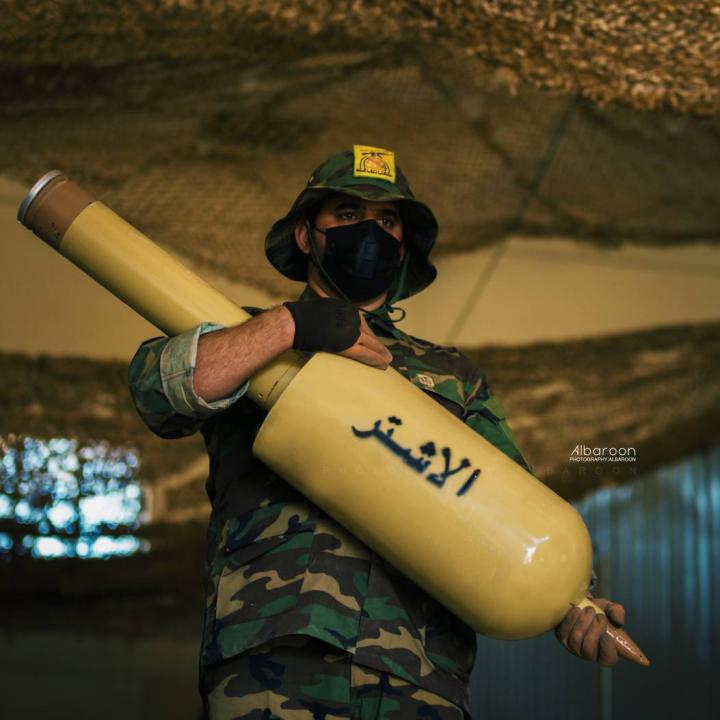
Coded Militia Language Aims to Signal Escalation

The Iraqi "resistance" is using language that previously presaged attacks on U.S. targets, whether sincerely or as a supportive bluff amid the latest Hamas-Israel crisis.
Following the outbreak of war between Israel and Hamas last week, Iraqi militia media outlet Sabereen News has returned to its old style of used coded religious language to report important developments regarding the self-styled muqawama (resistance). One key message posted early on October 13 read as follows: “I saw muallemi (my teacher/mentor) holding the book of Allah and reading its verses. I didn’t interrupt him because he seemed like he had something great to present. Before I left, he said, 'Wait until tomorrow and the freemen eyes will be happy.' My teacher is a man who doesn’t lie" (Figure 1). Historically, this coded language has been used to signal imminent muqawama action.
Sabereen then reposted Ayatollah Ali al-Sistani’s October 11 statement asking the world to “stand up in the face of [Israel’s] terrible atrocity” (Figure 2). This could be the militias' attempt to claim that Sistani has granted them religious permission to carry out whatever actions they might be planning. In a subsequent post, Sabereen wrote, “We, the Shia of Ali bin Abi Talib [the first Shia imam], will not abandon Palestine, nor the people of Palestine, nor the sanctity of the umma [Muslim community] in Palestine” (Figure 3). Notably, muqawama groups used another Sistani fatwa back in June 2014 to justify their mass mobilization against the Islamic State, and it remains in effect today.
At the exact same time as Sabereen's posts, the Kataib Hezbollah social media account Kaf posted a Quranic verse about the displacement of Jews: “He it is Who drove out the disbelievers among the people of the Scripture [i.e. the Jews of the Bani al-Nadir tribe] from their homes at the first gathering. You did not think that they would get out. And they thought that their fortresses would defend them from Allah! But Allah's [torment] reached them from a place whereof they expected it not, and He cast terror into their hearts, so that they destroyed their own dwellings with their own hands and the hands of the believers. Then take admonition, O you with eyes [to see]” (Figure 4) (courtesy of surahquran.com).
Other muqawama social media accounts pushed out similar messaging the same day, including Quranic verses about jihad. Al-Qudsiyoun, a Telegram channel affiliated with Ashab al-Kahf, posted: “Fight those who do not believe in Allah or in the Last Day” (Figure 5) (courtesy of surahquran.com).
Earlier last week, Iraqi militia leaders had vaguely warned that U.S. intervention in the latest Hamas-Israel conflict would trigger an attack on "all U.S. targets." Yet the October 13 messaging seems to signal a different type of militia involvement. In past years (particularly 2020-21), such language significantly raised the likelihood that an attack would be carried out within days. In tandem with statements from Sistani that the muqawama may be hoping to weaponize, militia outlets are seemingly intent on suggesting major escalation.
Alternatively, the messages could point to non-kinetic or pre-kinetic types of involvement, such as helping consolidate Hezbollah’s positions in south Lebanon or increasing the militia presence in the Syrian Golan and al-Quneitra in anticipation of the conflict widening to other areas. In fact, the muallemi saying is so well-known today that it could be used simply to lend seriousness to an effort that may not have much actual operational impact. Thus far, Iran's broader "axis of resistance" (including Lebanese Hezbollah) has operated in a supporting role to the Hamas war, drawing Israel's attention and reserves away from Gaza in an apparent attempt to deter a ground operation into the Strip.









